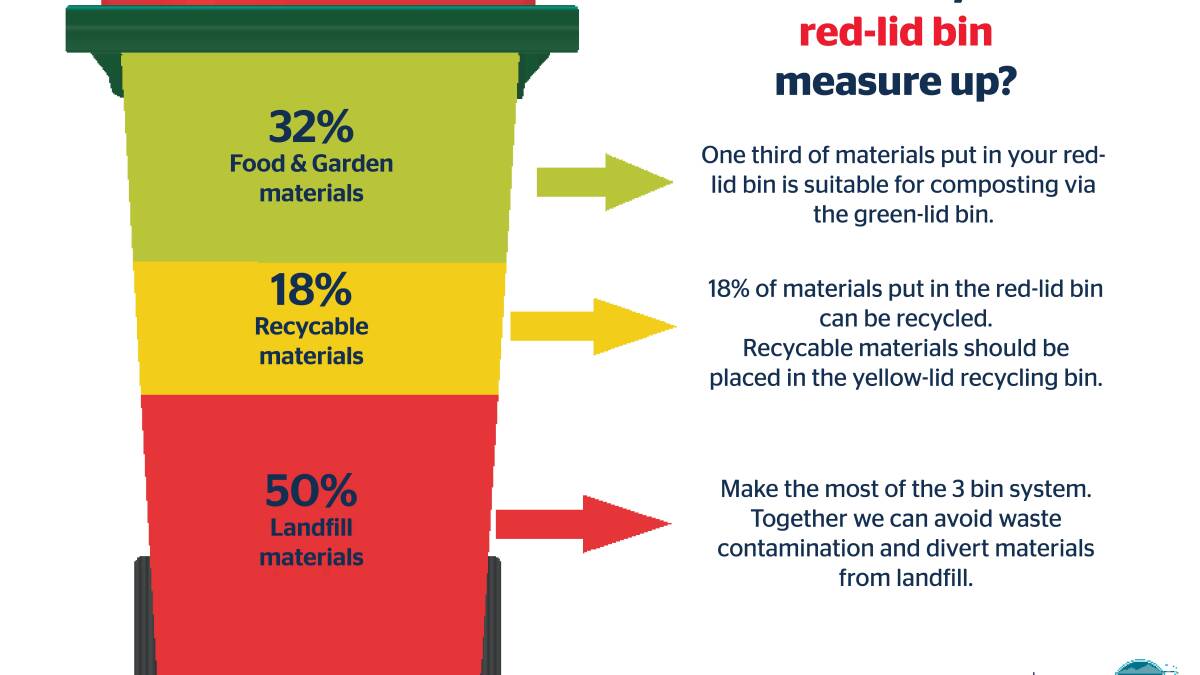
Parkes residents are being reminded to separate their household waste, after the 2019 NetWaste Audit found that 50% of the average Parkes household bin is made up of recyclable materials and food and garden waste.
Subscribe now for unlimited access.
$0/
(min cost $0)
or signup to continue reading
Over the course of a three week period, three tonnes of general waste, recycling, and food and garden waste was collected from Parkes households to provide a detailed break-down of the city's waste streams.
Of the materials disposed of in the general waste red-lid bin, 18% of the contents were recyclable materials and 32% were food and garden organics.
"While we commend those residents who are making a real effort to sort their household waste, these figures could be reduced to zero through sustained efforts by everyone to correctly use the yellow-lid recycling bin and green-lid food and garden waste bin.
"If sorted correctly, paper and cardboard can be recycled into products such as corrugated and kraft paper. Garden and organic waste can be processed into compost. These valuable resources are too good to waste." says Councillor Alan Ward, Chair of the Parkes Shire Waste Facilities Committee.
Organic material has a detrimental impact on the environment when sent to landfill. When this waste is compacted and buried in landfill, it breaks down anaerobically (without oxygen) and in doing so, produces large quantities of methane.
By diverting food and garden waste from landfill through the green-lidded food and garden waste bin, it is turned into compost, meaning that excessive methane production is avoided and what was once waste becomes a valuable resource - fertiliser. Sorting materials into the appropriate bin also diverts waste from landfill and contributes to the longevity of the local waste facilities.
To learn more about what is accepted in your three-bin service, visit Council's website at www.parkes.nsw.gov.au.

